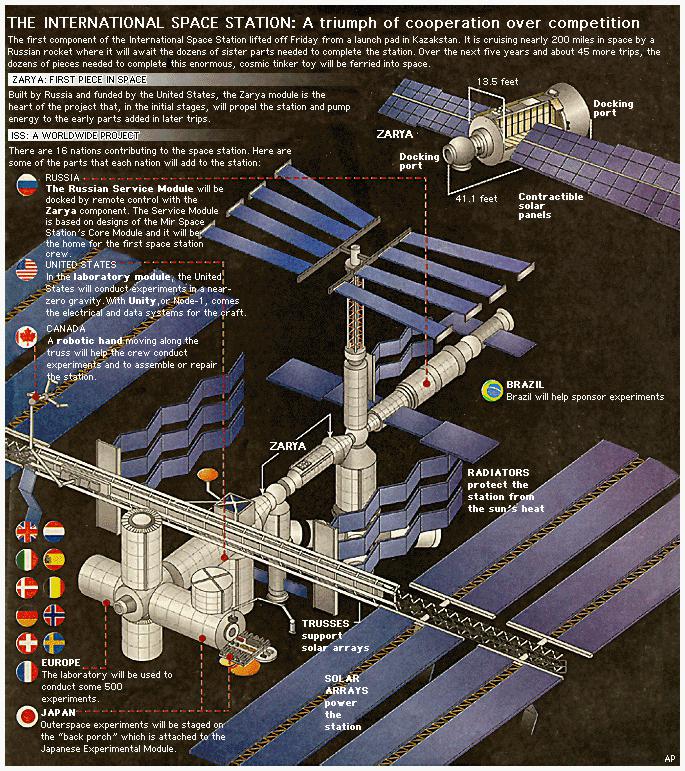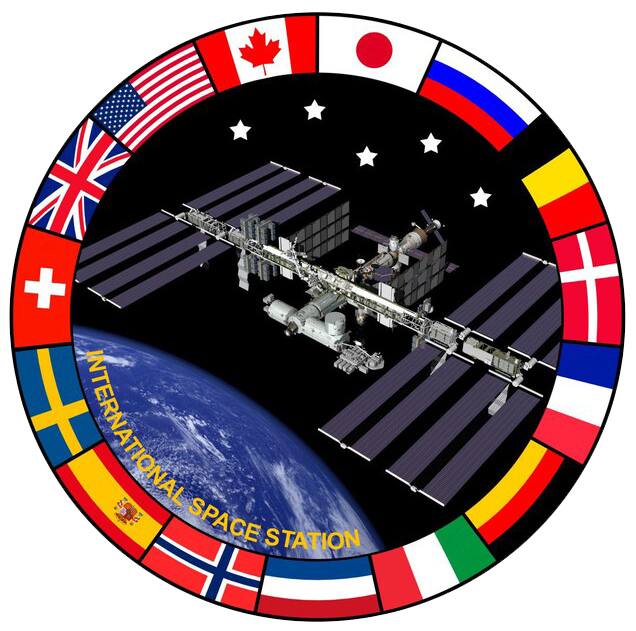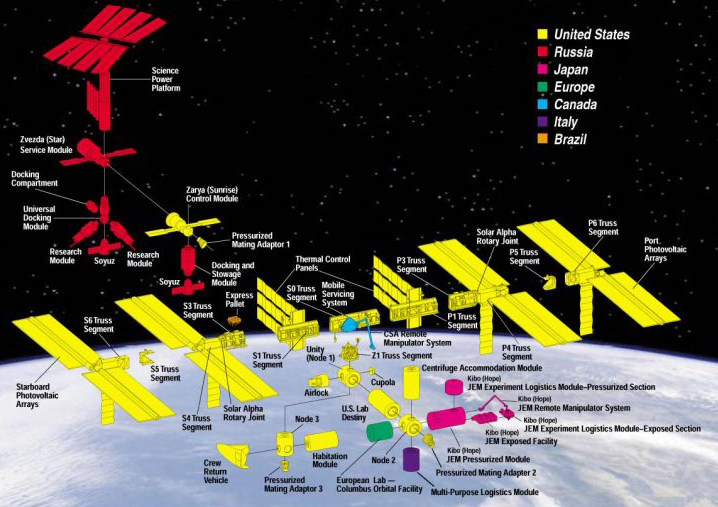
Michael Cabbage, Russia Launches First Component of International Space Station,
November 20, 1998, Orlando Sentinel



Daniel Oberhaus, Cold War Politics Shaped the International Space Station, August 25, 2020, Supercluster


Michael Cabbage, Russia Launches First Component of International Space Station,
November 20, 1998, Orlando Sentinel

ISS Logo, NASA

The Space Station International Participation, August 27, 2015,
Russian International Affairs Council